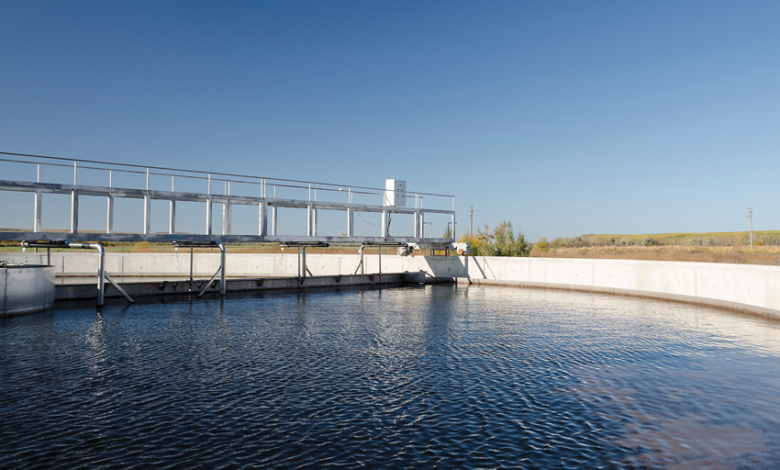Outlook on future EU water policy

 Sébastien Mouret, Policy Officer at EurEau, speaks to eolas Magazine about the outlook of EU water policy and legislative priorities over a pivotal period for the sector.
Sébastien Mouret, Policy Officer at EurEau, speaks to eolas Magazine about the outlook of EU water policy and legislative priorities over a pivotal period for the sector.
This “pivotal period” for water policy has seen a myriad legislation either directly relating to water and its management and protection or similar legislation that affects water management introduced at EU level. Among those to have been already passed are the Water Reuse Regulation, the Drinking Water Directive, the NIS2 Directive, and the Critical Entities Resilience Directive. At the same time, there are prospective agreements that are still under negotiation, yet to be adopted in their final form, like the revision of the Urban Waste Water Treatment Directive, the Groundwater Directive, and the Industrial Emissions Directive. On top of this, other pieces of legislation are awaiting instigation including the Nitrates Directive, the Sewage Sludge Directive, and the Bathing Water Directive.
Chief among the directives currently being debated in the European Parliament and in the Council is the revision of the Urban Waste Water Treatment Directive, first enacted in 1991. “In its evaluation of the existing text, the Commission recognised that it has been very effective in its goals, which has been partly due to how simple it has been in its requirements,” Mouret says.
“Now the revision seeks not just to increase the ambition in terms of levels of treatment and environmental protection but also to include protection of human health, improving the energy balance of the wastewater sector, ensuring access to sanitation, improving the transparency of the sector, and also ensuring surveillance of wastewater treatment from a public health perspective following the experience of the sector during the Covid pandemic.”
On non-domestic wastewater, the new proposal would require an authorisation for all non-domestic discharges to sewers. This currently only applies to industrial discharges, but this would, for example, apply to businesses that do not fall under the Industrial Emissions Directive and would require the permitting authority to consult the wastewater operators before delivering that authorisation, making it “something we very much support”, Mouret adds.
Energy neutrality
One of the major innovations of the revised directive is the requirement for energy neutrality within the sector, Mouret continues. “Broadly speaking, the idea is that the energy produced by wastewater treatment plants should cover the energy needs of wastewater treatment plants by 2040. That is going to be calculated at the national level for wastewater treatment plants treating over 10,000 population equivalent, but the idea is to have neutrality by 2040, with intermediate deadlines of 50 per cent coverage by 2030 and 75 per cent by 2035,” he explains.
“This is going to be a challenging goal for the sector with a very tight timeframe because the directive is not going to be adopted at the very least until 2024, with a transposition period likely to be two years, so that brings us within four years of the first deadline in 2030. This is going to be especially challenging because it comes at the same time as a major increase in treatment requirements, which is likely to increase the energy demand.”
Stringent requirements will also be introduced for tertiary treatments, with more plants being obliged to remove nutrients and tighter parametric values for total phosphorous and total nitrogen. A new requirement for quaternary treatment to remove micropollutants from water will be a first for the EU, with the aim to remove 80 per cent of a list of six substances out of a list of 12 named in the directive. “This requires a complete overhaul of wastewater treatment, adding a wastewater treatment stage that will be very capital expenditure-intensive, but also energy- and operational expenditure-intensive once it is online,” Mouret says. The Commission has introduced a producer responsibility scheme to cover the costs, targeting pharmaceuticals and cosmetics manufacturers, who are said to be responsible for 92 per cent of micropollutants in urban wastewater.
“What are we calling for is the mainstreaming of control-at-source for all pollutants. For quaternary treatment, extended producer responsibility is a major step forward in this because it incentivises pharmaceutical and cosmetic producers to switch to less hazardous alternatives, but it needs to be fully implemented before the treatment requirements kick in, otherwise the funding will not be properly secured,” Mouret adds.
“We think that the deadlines for implementation should be extended; 2030 is very close when we bear in mind the time it takes to enact European legislation into national legislation. Finally, we need a holistic approach to energy neutrality because the wastewater sector can mobilise a wide variety of energy sources but not all of them are within the bounds of the wastewater treatment plant and so we need to ensure that the legislation takes into account renewable energy used by the wastewater treatment plants wherever it comes from. We hope to see this text adopted by spring of 2024, before the next European elections.”
The future of Europe
With European elections due to take place in June 2024, Mouret and EurEau are aware that the make-up of the European Commission is likely to change. “It is impossible to predict future elections obviously, but from the current trends it is likely that the next European Parliament is going to lean further to the right, which means that they will likely be less agreeable for environmental measures as opposed to industrial competitiveness concerns,” he says. Despite this, he mentions the, “slightly more remote possibility”, of a new commission adding to the European Green Deal with a Blue Deal – which the European Economic and Social Committee has been working on and expects to present in October 2023 – that would “integrate water across the EU’s policy priorities much like the Green Deal did with climate and environment”.
Mouret concludes: “Whatever the next Commission chooses to focus the next legislative output on, our priorities will remain securing investment through appropriate pricing which allows us to ensure access to water for everyone, protecting water resources from everyone, and protecting the sustainable use of resources through the circular economy.”





